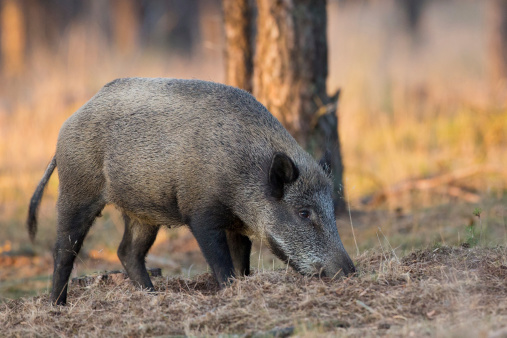Researchers are on a mission to learn more about wild hogs in the Big South Fork National River and Recreation Area.
For the past two years, the park has partnered with the University of Tennessee to capture and tag a number of wild pigs in the park. The pigs are an invasive species that are severely impacting the natural wildlife in the area. They can also do a lot of damage to property and can carry diseases like pseudorabies and swine brucellosis, though that does not appear to be present in the BSF.
So far, the researchers have determined how the GPS-tagged pigs move through the park. They appear to move in groups in a territory that's 2-5 miles long, but that can vary according to food sources.
It is legal to hunt hogs during the appropriate season in the BSF, but hunters are urged not to kill the wild hogs that are wearing GPS collars. If they do, they should use the contact information on the collar to get in touch with wildlife officials so the collar can be placed on another hog and the research can continue. They are asked not to eat the meat from collared hogs, because the animals were injected with drugs during capture to promote safe handling.
Hunters should always wear gloves and eye protection while field dressing wild animals, according to BSF officials.
It's hoped the research project, which will continue next year, will help develop a wild hog management strategy for BSF.
Hunters are encouraged to send in pictures of wild pigs harvested in the park. Tag photos with #HuntBSF or #HuntOBED to share your hunting experiences on social media.


